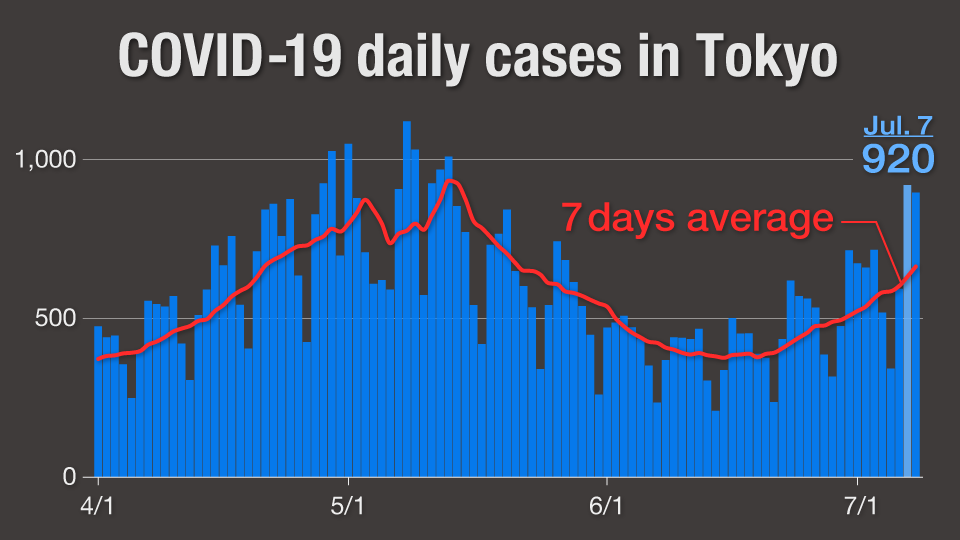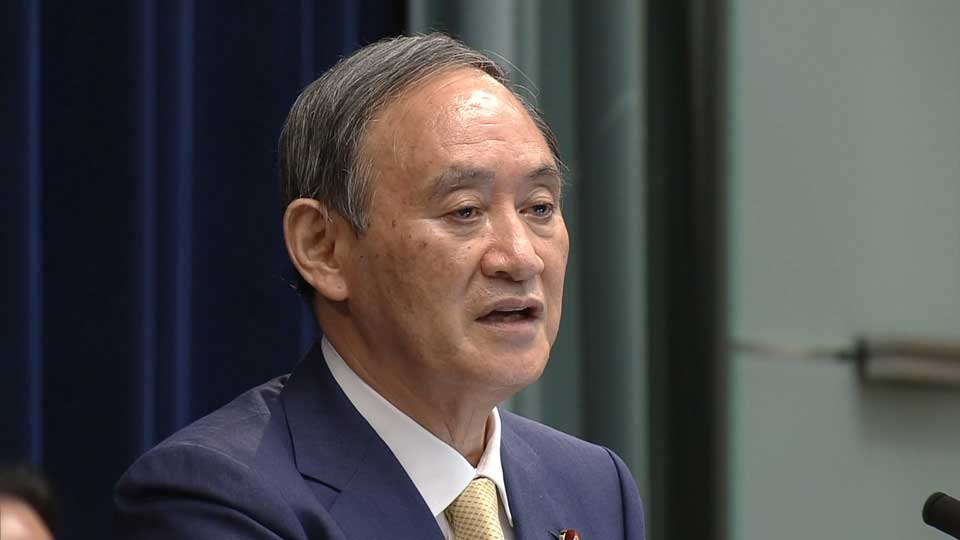Prime Minister Suga Yoshihide had previously raised the possibility of holding the Games without fans in stands if the government had to declare a new state of emergency. And that is precisely what has happened.
"We must avoid another outbreak originating in Tokyo," Suga said at a news conference on Thursday. "So, we decided to take preemptive measures.”
The Prime Minister says the number of cases is surging in Tokyo with the spread of the Delta variant first detected in India. Health officials reported 920 cases on Wednesday, which was the highest figure since mid-May.

Suga says he views the Games, which start in two weeks, as a kind of opportunity.
"Holding a safe and secure Games amid the coronavirus pandemic is a good opportunity to show our global unity when the world is facing difficulties,” he said.
After the government's announcement, representatives from the Games' organizing committee, the government, the Tokyo government and the International Olympic and Paralympic committees agreed on the audience caps.
No fans will be allowed at events in Tokyo and its neighboring three prefectures of Saitama, Chiba and Kanagawa. Targeted anti-virus measures for those three prefectures will also be extended through August 22.
A limited number of domestic spectators will be allowed into venues in four other prefectures. A decision on spectators for events in Hokkaido, including the marathon, will be announced later.
For people like Fukumoto Reiko, who has tickets for the women's soccer final, the decision is a bitter disappointment. "No one did anything wrong,” she says. “All I can do is pray that the athletes can perform in top condition."
In a news conference held after midnight on Friday, the head of the organizing committee, Hashimoto Seiko, said that she is sorry. "But we expect that we can get more understanding for holding the Games by having no spectators," she added. "We will continue to make efforts so that people will understand the meaning and value of the Games in a situation like this."
 English
English Japan
Japan

